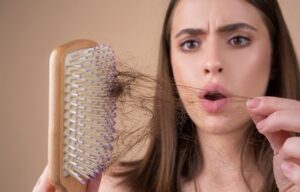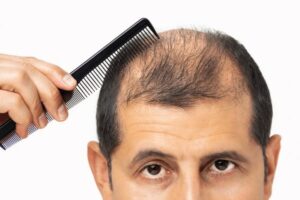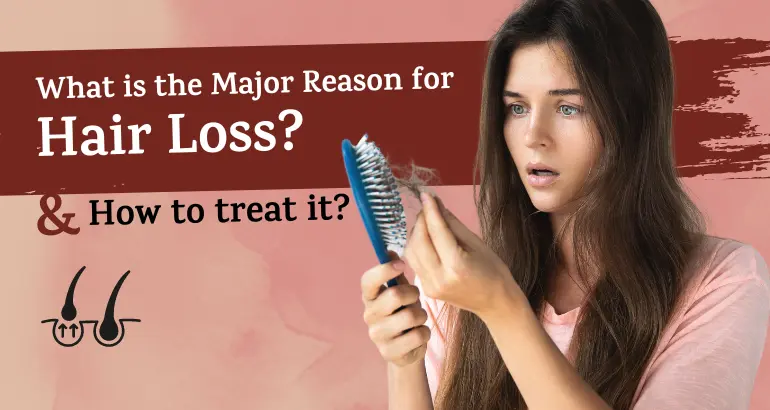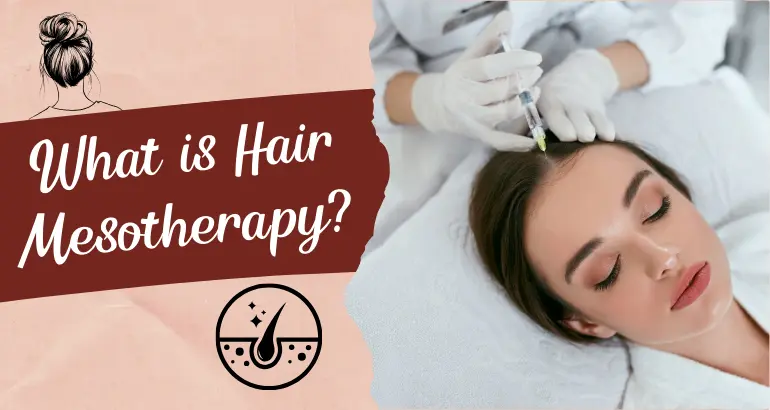Hair loss, also known as alopecia, is a common concern for both men and women. While it’s normal to lose some hair daily (around 50-100 strands), excessive hair fall can be a cause for worry. There isn’t a single “major” reason, but several factors contribute to hair loss.
This blog post by Dr. Pallavi Sule, a Hair Fall Specialist in Powai, Mumbai will delve into the reasons behind hair loss in both men and women and explore treatment options available.
What is the Major Reason for Hair Loss?
There are multiple culprits for hair loss. It’s often a combination of factors. Understanding the type of hair loss that you’re experiencing is crucial for effective treatment.
Types of Hair Loss
Hair loss, medically known as alopecia, can manifest in various forms and have different underlying causes. Understanding the different types of hair loss can help in identifying the specific condition and determining appropriate treatment options.
Here are some common types of hair loss:
- Androgenetic Alopecia (Pattern Baldness)
- Alopecia Areata
- Telogen Effluvium
- Anagen Effluvium
- Tinea Capitis (Scalp Ringworm)
- Traction Alopecia
- Scarring Alopecia
- Pseudofolliculitis barbae (Razor Bumps)
Reasons for Hair Loss in Women (Hair Loss Reasons Female / Cause of Hair Fall in Women)

Women experience hair loss for various reasons, some specific to their biology:
- Hormonal Changes: Pregnancy, childbirth, menopause, and fluctuations in estrogen and androgen levels can trigger hair loss in women.
- Thyroid Issues: An underactive or overactive thyroid gland can disrupt hair growth and lead to hair fall.
- PCOS (Polycystic Ovary Syndrome): This hormonal imbalance can cause hair loss as a symptom.
- Stress: Severe or chronic stress can disrupt the hair growth cycle and lead to temporary hair shedding.
- Nutritional Deficiencies: Lack of iron, protein, biotin, or other essential nutrients can contribute to hair loss.
- Hairstyles and Hair Care Practices: Tight hairstyles like braids or ponytails, and harsh chemical treatments like coloring or perming, can damage hair and lead to breakage.
Hair Loss Reasons in Men (Male Pattern Hair Loss)

While male pattern baldness is the most common cause, other factors can contribute to hair loss in men:
- Genetics: Androgenetic alopecia is hereditary and passed down through families.
- Testosterone: The conversion of testosterone to DHT (dihydrotestosterone) shrinks hair follicles, leading to hair loss.
- Age: Hair growth slows down naturally with age, contributing to thinning hair.
Hair Loss Treatment for Men & Women
The good news is that there are treatment options available for women experiencing hair loss. Dr. Pallavi Sule, a Hair Fall Specialist in Powai, can recommend the best course of action based on your individual needs.
Here are some potential solutions:
- Minoxidil: This topical medication helps stimulate hair growth in some women.
- Finasteride: This medication, though typically used for men, can be prescribed in low doses for certain cases of female hair loss. (Note: Not recommended during pregnancy or breastfeeding)
- Hormonal Therapy: In cases of hormonal imbalance, addressing the underlying issue can promote hair growth.
- Scalp Microneedling: This minimally invasive technique can improve blood circulation to the scalp and stimulate hair follicles.
- PRP (Platelet-Rich Plasma) Therapy: PRP injections use your own platelets to promote hair growth.
- Lifestyle Changes: Maintaining a healthy diet, managing stress, and adopting gentle hair care practices can all contribute to healthier hair.
How to Prevent Hair Loss in Men and Women?
Preventing hair loss involves a combination of lifestyle choices, proper hair care, and, in some cases, medical interventions.
Here are some strategies for both men and women:
- Maintain a Healthy Diet
- Balanced Nutrition: Ensure your diet is rich in essential vitamins and minerals, especially iron, zinc, vitamin D, and proteins. Foods like leafy greens, nuts, seeds, fish, and lean meats support hair health.
- Hydration: Drink plenty of water to keep your hair hydrated and healthy.
- Proper Hair Care
- Gentle Washing: Wash your hair regularly with a mild shampoo to keep the scalp clean. Avoid overwashing, which can strip natural oils.
- Conditioning: Use a good conditioner to keep hair moisturized and reduce breakage.
- Avoid Heat and Chemicals: Limit the use of hair dryers, curling irons, straighteners, and chemical treatments, which can weaken hair and lead to loss.
- Gentle Handling: Be gentle when brushing or styling your hair to avoid unnecessary pulling and breakage.
- Stress Management
- Relaxation Techniques: Practice stress-reducing techniques like meditation, yoga, and deep breathing exercises.
- Regular Exercise: Engage in regular physical activity to help reduce stress levels and improve overall health.
- Healthy Lifestyle Choices
- Adequate Sleep: Ensure you get enough sleep to help your body recover and maintain overall health.
- Avoid Smoking and Excessive Alcohol: Both smoking and excessive alcohol consumption can contribute to hair loss.
- Regular Scalp Care
- Scalp Massage: Regular scalp massages can improve blood circulation to the hair follicles and promote hair growth.
- Avoid Tight Hairstyles: Hairstyles that pull tightly on the hair can cause traction alopecia. Opt for looser styles.
- Medical Interventions
- Consult a doctor: If you notice significant hair loss, consult a healthcare professional to rule out underlying health conditions such as thyroid problems, hormonal imbalances, or nutritional deficiencies.
- Medications: Preventive medications like minoxidil (Rogaine) can be used to maintain hair density and prevent further loss. Finasteride (Propecia) is another option for men.
- Supplements
- Vitamins and Minerals: Consider supplements if you’re not getting enough nutrients from your diet. Biotin, vitamin D, iron, and zinc supplements can support hair health.
- Avoid Environmental Damage
- Protection: Protect your hair from environmental damage by wearing hats in the sun, use swimming caps in chlorinated pools, and avoiding prolonged exposure to pollutants.
- Hormonal Balance
- Check Hormonal Levels: Especially for women, maintaining hormonal balance is crucial. Conditions like polycystic ovary syndrome (PCOS) and menopause can affect hair health.
- Regular Health Check-ups
- Monitor Health: Regular check-ups can help detect any underlying conditions that might contribute to hair loss, allowing for early intervention.
Preventing hair loss often requires a holistic approach, focusing on overall health and specific hair care practices. Implementing these strategies can help maintain healthy hair and potentially prevent hair loss.
Don’t Let Hair Loss Hold You Back
Hair loss can be a frustrating experience, but it doesn’t have to define you. With the help of a qualified Hair Fall Specialist like Dr. Pallavi Sule in Powai, you can explore treatment options and regain confidence with a healthier head of hair.
Schedule a consultation with Dr. Pallavi Sule today to discuss your hair loss concerns and develop a personalized treatment plan.


